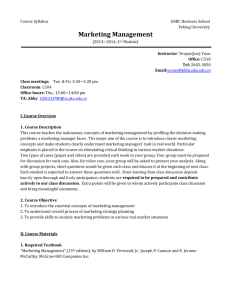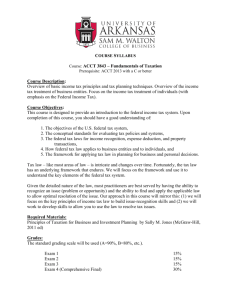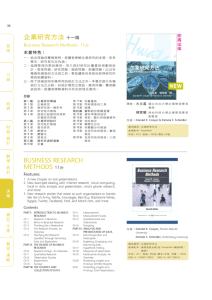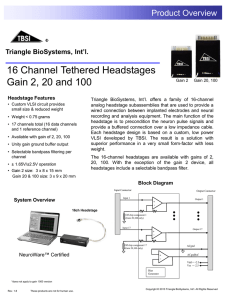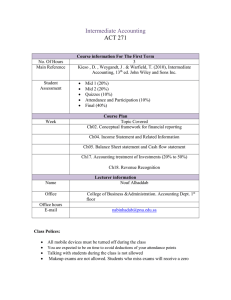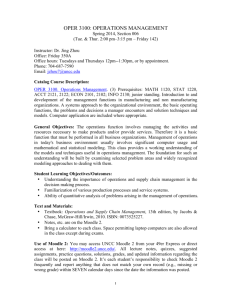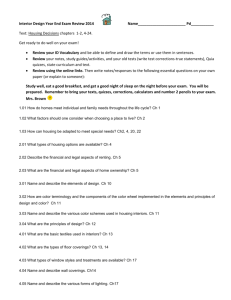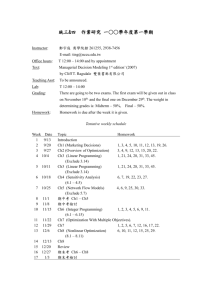CBA 390 - Operations Management – Spring 2011 5503
advertisement
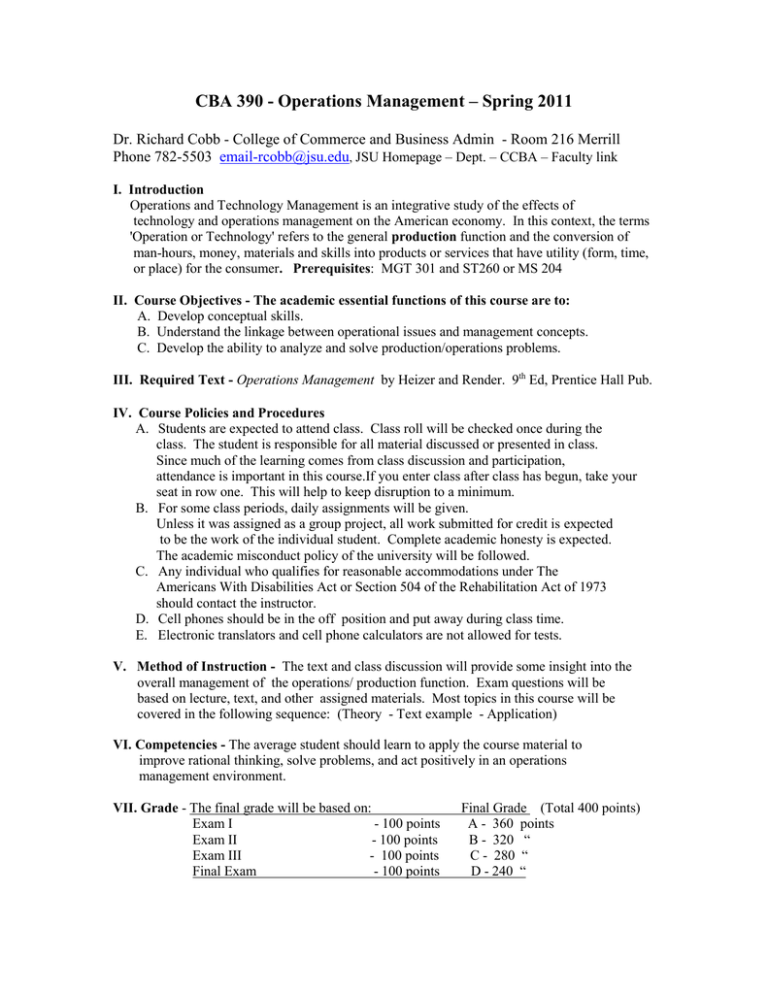
CBA 390 - Operations Management – Spring 2011 Dr. Richard Cobb - College of Commerce and Business Admin - Room 216 Merrill Phone 782-5503 email-rcobb@jsu.edu, JSU Homepage – Dept. – CCBA – Faculty link I. Introduction Operations and Technology Management is an integrative study of the effects of technology and operations management on the American economy. In this context, the terms 'Operation or Technology' refers to the general production function and the conversion of man-hours, money, materials and skills into products or services that have utility (form, time, or place) for the consumer. Prerequisites: MGT 301 and ST260 or MS 204 II. Course Objectives - The academic essential functions of this course are to: A. Develop conceptual skills. B. Understand the linkage between operational issues and management concepts. C. Develop the ability to analyze and solve production/operations problems. III. Required Text - Operations Management by Heizer and Render. 9th Ed, Prentice Hall Pub. IV. Course Policies and Procedures A. Students are expected to attend class. Class roll will be checked once during the class. The student is responsible for all material discussed or presented in class. Since much of the learning comes from class discussion and participation, attendance is important in this course.If you enter class after class has begun, take your seat in row one. This will help to keep disruption to a minimum. B. For some class periods, daily assignments will be given. Unless it was assigned as a group project, all work submitted for credit is expected to be the work of the individual student. Complete academic honesty is expected. The academic misconduct policy of the university will be followed. C. Any individual who qualifies for reasonable accommodations under The Americans With Disabilities Act or Section 504 of the Rehabilitation Act of 1973 should contact the instructor. D. Cell phones should be in the off position and put away during class time. E. Electronic translators and cell phone calculators are not allowed for tests. V. Method of Instruction - The text and class discussion will provide some insight into the overall management of the operations/ production function. Exam questions will be based on lecture, text, and other assigned materials. Most topics in this course will be covered in the following sequence: (Theory - Text example - Application) VI. Competencies - The average student should learn to apply the course material to improve rational thinking, solve problems, and act positively in an operations management environment. VII. Grade - The final grade will be based on: Exam I - 100 points Exam II - 100 points Exam III - 100 points Final Exam - 100 points Final Grade (Total 400 points) A - 360 points B - 320 “ C - 280 “ D - 240 “ CBA 390 Spring 2011 VIII. Class 1 2 3 4 5 6 7 8 9 10 11 12 13 14 15 16 17 18 19 20 21 22 23 24 25 26 27 28 39 30 31 32 33 34 35 36 37 38 39 40 Tentative Course Outline Date Text Material P/OM Topic Jan 7 Ch1 Introduction, Productivity 10 Ch1 12 Ch2 Strategy, Global Operations 14 Ch2 19 Ch3 Project Management 21 Ch3 24 Ch4 Forecasting 26 Ch4 28 Ch5 Design of goods/services 31 Exam I Feb 2 Ch6, 6S Quality Control, SPC 4 Ch6, 6S 7 Mod A Decision Models 9 Mod A 11 Ch7 Process strategy 14 Ch8 Location Strategy 16 Ch8 18 Ch9 Layout Strategy 21 Ch10 HRM and Job Design 23 Exam II 25 Ch11, 11S Supply Chain, E-commerce 28 Ch11, 11S Mar 2 Ch 12 Inventory 4 Ch 12 7 Ch 12 9 Ch 13 Aggragate Planning 11 Ch 13 21 Ch14 MRP 23 Ch14 25 Exam III 28 Ch15 Short-Term Scheduling 30 Ch15 Apr 1 Ch16 JIT/Lean Operations 4 Ch16 6 Ch16 8 Ch17 Maintenance 11 Ch17 13 Ch17 15 Ch17 22 Final 10:30 – 12:30
